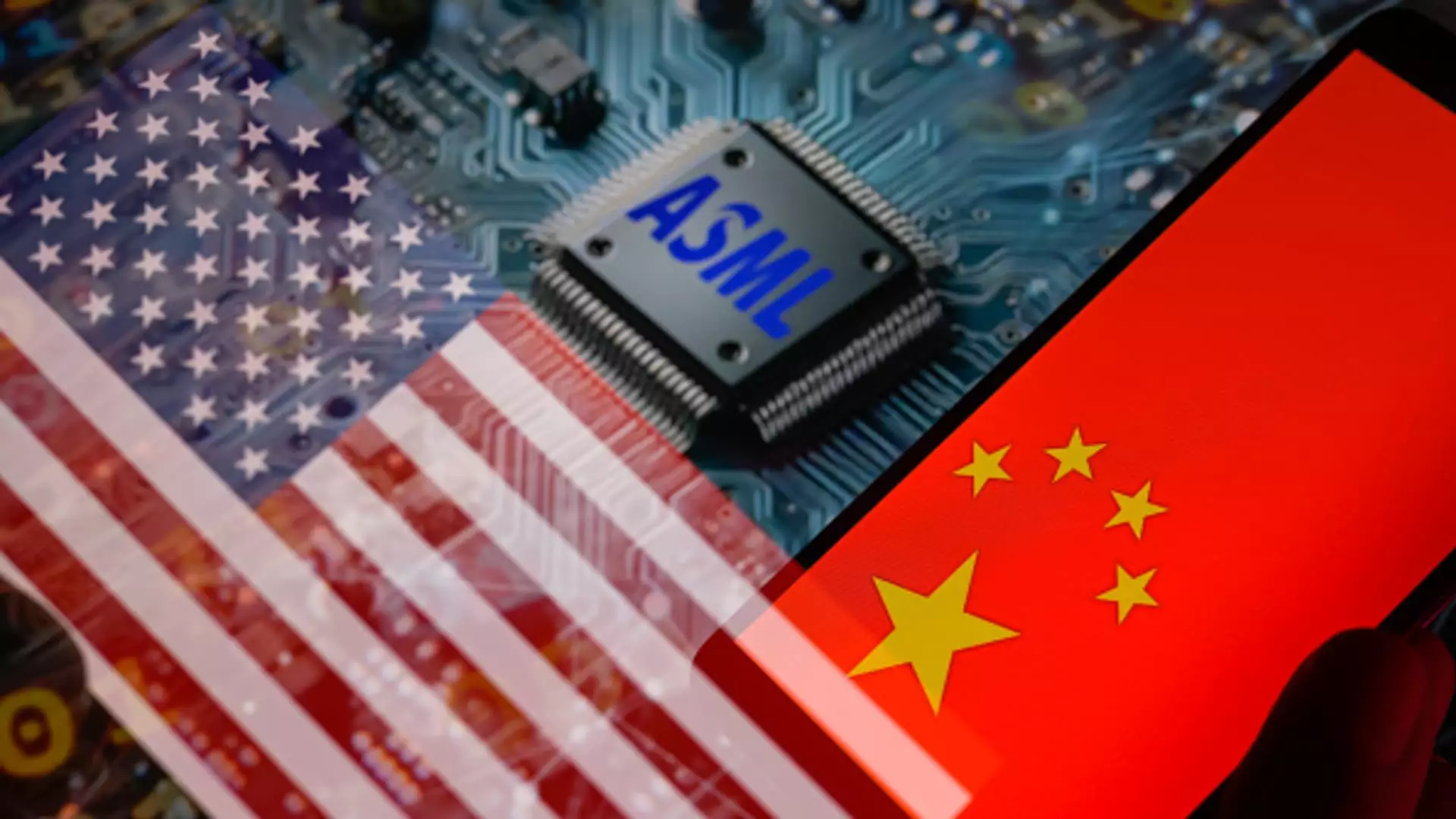On Thursday, a wave of optimism swept through the shares of notable global semiconductor equipment manufacturers, spurred by reports indicating that the United States might adopt milder sanctions against China’s semiconductor sector. The shares of ASML, a Dutch firm pivotal in the semiconductor supply chain, experienced a significant uplift of approximately 3.6% in early European trading. Similarly, Japanese giant Tokyo Electron witnessed an impressive boost of over 6% in its home market. This market reaction reflects investors’ relief at the prospect of new regulations being less stringent than previous proposals, which had evoked fears of potential disruptions in international trade and production channels.
According to a Bloomberg report, Washington is contemplating additional measures to limit the sales of semiconductor manufacturing equipment and artificial intelligence (AI) memory chips to China. Notably, these new regulations are expected to be less severe than earlier drafts, which had raised alarms about sweeping restrictions. The U.S. Commerce Department has yet to provide a formal comment on these developments, but analysts within the industry are closely monitoring the situation. One significant potential outcome of this shift in strategy is the possibility of fewer Chinese suppliers, including technology powerhouse Huawei, being added to an export blacklist known as the Entity List.
The Implications for Key Players in the Semiconductor Market
One major firm that appears to be sidestepped by these updated sanctions is ChangXin Memory Technologies, a company that could potentially rival industry leaders such as SK Hynix and Samsung. Jefferies analysts interpreted this news as a positive sign for ASML, suggesting that the exclusion of ChangXin from the blacklist may soften the anticipated 30% revenue drop that ASML had previously forecast for the upcoming year. The firm’s unique role in the semiconductor supply chain—especially through the production of essential lithography machines—positions it critically in the ongoing U.S.-China tech rivalry.
ASML’s operations have faced considerable challenges due to increasing geopolitical tensions surrounding semiconductor exports. Not only have restrictions already curtailed the sale of their most advanced manufacturing machinery to China, but recent policies from both the U.S. and Dutch governments have further complicated the export of even less intricate manufacturing tools. This situation presents a dual-edged sword for ASML. While restrictions could hamper demand from Chinese manufacturers—who rely on these machines—such hurdles also work to benefit ASML by potentially lifting sales prospects with suppliers in less affected regions.
Outlook for the Semiconductor Equipment Market
The ongoing fluctuations in semiconductor regulations exemplify the volatile market environment in which companies like ASML and Tokyo Electron operate. As these firms navigate a complicated landscape laden with regulatory challenges and fierce competition, the evolving U.S. stance could play a crucial role in dictating market dynamics. While the easing of sanctions may temporarily bolster investor confidence, the long-term implications of the U.S.-China tech rivalry remain uncertain, posing potential risks and opportunities for all involved stakeholders in the semiconductor manufacturing sector.

